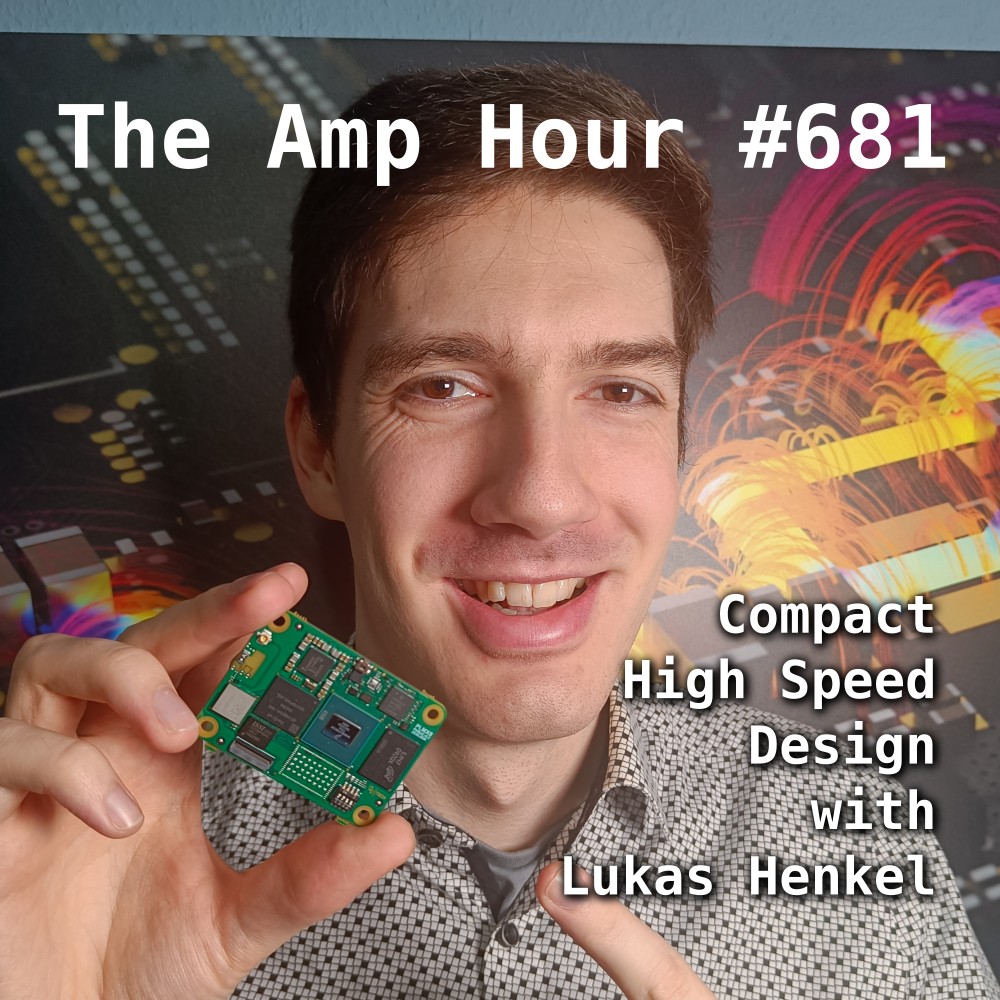
 The Amp Hour Electronics Podcast
The Amp Hour Electronics Podcast #681 – Compact High Speed Design with Lukas Henkel
Oct 31, 2024
Lukas Henkel, CEO of OV Tech GmbH and co-founder of PCB Arts, brings his expertise in high-speed design and miniaturization to the discussion. He dives into the challenges of fitting powerful computing into small form factors, addressing price constraints and the use of standard PCB technology. Lukas reveals insights on System-in-Package (SIP) designs and shares an upcoming Crowd Supply campaign for a new IoT module. He also emphasizes the role of visualizations in understanding signal integrity and the importance of community-driven innovation in electronics.
Chapters
Transcript
Episode notes
1 2 3 4 5 6 7 8
Intro
00:00 • 2min
Miniaturization in High-Performance Embedded Systems
01:44 • 8min
Designing with Modularity in Mind
09:18 • 15min
Exploring the SIP Development and Upcoming PyMX8 Crowd Supply Campaign
24:37 • 2min
Innovating with Raspberry Pi: From Open Source to Market
26:34 • 12min
The Role of Visualizations in Signal Integrity and RF Understanding
38:17 • 2min
Integrating PreCAD with OpenEMS
40:31 • 7min
Unveiling the Power of Curiosity in PCB Design
47:27 • 17min

